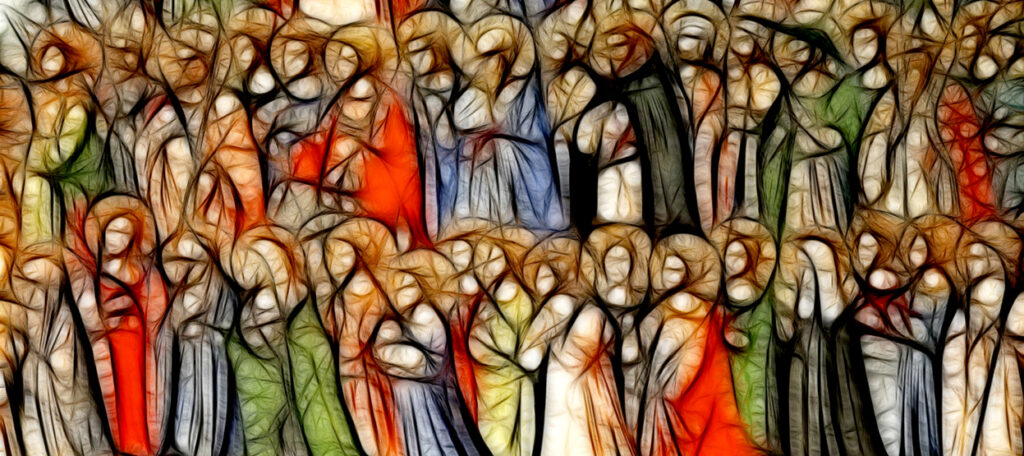Miguel Augusto
The Church celebrates on November 1st the Solemnity of All Saints. On this solemnity, the Church exults in the glory and honor of all the Saints, who eternally contemplate the face of God and fully live his beatific vision; united to Christ in eternal glory, they intercede for the Church, for all the faithful. The expression “communion of saints” indicates the participation of all the members of the Church in the faith, sacraments, charisms and other spiritual gifts. About this mystic communion St Josemaría Escrivá said “live a special Communion of Saints: and, in the moments of interior struggle just as in the hours of professional work, each of you will feel the joy and the strength of not being alone.”
God’s call to holiness, revealed in the Holy Scriptures, is a path that all Christians are called to tread, following the example of those who have attained holiness, who are proposed as models of a Christian life.
The gift of the Eucharist makes it possible to anticipate the liturgy that the Lord celebrates in the heavenly sanctuary, with all the Saints. The greatness of redemption is measured by its fruits, that is, by those who have been redeemed by holiness.
The origin of this feast of hope, the goal of life in Christ, has ancient roots. In the fourth century, the commemoration of the faithful martyrs began. The first signs of this celebration could be found in Antioch on the Sunday after Pentecost, about which St John Chrysostom speaks.
Between the 8th and 9th centuries, this feast began to spread throughout Europe and Rome, where Pope Gregory III (731-741) chose November 1st as the date that coincided with the consecration of a chapel in the Basilica of St Peter, dedicated to the relics “of the holy Apostles and of all the holy martyrs and confessors, and of all the just who rest in peace in the world.”
Pope Emeritus Benedict XVI, in a homily given at the Solemnity of All Saints, November 1, 2006, said: “being a Saint means living close to God, to live in his family. And this is the vocation of us all, vigorously reaffirmed by the Second Vatican Council and solemnly proposed today for our attention. (…) But how can we become holy, friends of God? We can first give a negative answer to this question: to be a Saint requires neither extraordinary actions or works nor the possession of exceptional charisms. Then comes the positive reply: it is necessary first of all to listen to Jesus and then to follow him without losing heart when faced by difficulties. ‘If anyone serves me’, he warns us, ‘he must follow me; and where I am, there shall my servant be also; if any one serves me, the Father will honour him’ (Jn 12: 26). (…)
“The Saints are friends and models of life for us. Let us invoke them so that they may help us to imitate them and strive to respond generously, as they did, to the divine call.
“In particular, let us invoke Mary, Mother of the Lord and mirror of all holiness. May she, the All Holy, make us faithful disciples of her Son Jesus Christ! Amen.”


 Follow
Follow


